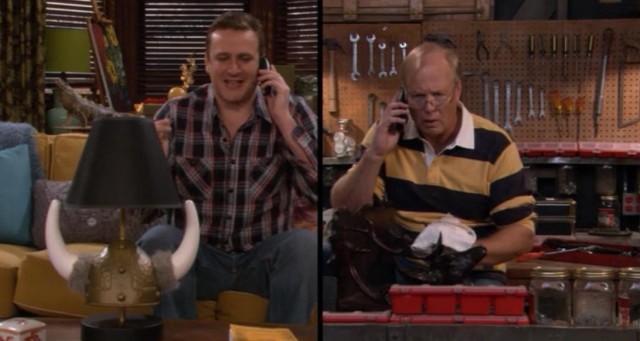How I Figured Out How to Stay Out of Credit Card Trouble (Thanks Dad)
by E.A. Mann

This post is brought to you by Discover it.

The story of my first credit card is dead boring. Nonetheless, I’d appreciate it if you read on, because my dad deserves his kudos. And besides, when it comes to money, boring can get you very, very far.
One of the paradoxes of writing about money is that unless you’ve won the lottery or founded a million dollar startup, your best bet at interesting copy is a hard luck story: Fortunes squandered; sky-high student loans signed with trembling hands; mountain ranges of debt. These make for great tales, and it’s important and necessary to pull back the curtain on our financial lives. But it’s better not to have a story at all. The reason my first credit card didn’t end as cautionary tale is because of my dad’s advice.
Midway through college, likely during one of the patented forty-five second phone calls my dad and I often had, he said something along the lines of, “You should probably have a credit history by now. Get a credit card. Don’t use it much.”
I’ve written before about the lack of financial education in public schools. Without a formal framework, we pick up knowledge where we can. My dad’s haiku-like statements accounted for most of my early money knowledge. They offered precise instruction without any pesky nuance.
After our conversation I went to my bank, where I already had a debit card, and signed up for a low-limit credit card. I received no swag, bonus points, cash back or travel miles (contrast this with my wife, whose first credit card came with a bag of M&M’s and a T-Shirt, surely the lamest goodies ever accepted for a credit card). The process could not have been more mundane.
But it could have been different for me. The term sheet was very complex (new regulations have made them easier to read) and I signed it without understanding a single word. I couldn’t tell you what the APR was on my first credit card, because at the time I couldn’t have told you what APR was.
On top of this, I graduated into the insane credit bubble of the mid-2000’s. In those heady days, my credit limit multiplied like a Gremlin underneath a sprinkler head. One morning I awoke to find my limit raised by $5,000 without any clear reason. Over a year, my credit limit rose from a few thousand dollars to a jaw dropping $25,000. On top of that, I received two-to-three new credit card offers per week in the mail.
This steady drumbeat of credit made the insane seem normal. Why shouldn’t I sop up this money? Smarter people than myself decided that I could handle it. Every time I logged into my online account the number $25,000 looked at me all dewy-eyed, asking, “Don’t you deserve something nice?” I was 21 — there were women to woo and real adult furniture to acquire. I saw former classmates just out of school buying new cars and televisions and thought I should too. The financial world had meticulously set up its mousetraps and requested very politely that I take two steps forward.
But I didn’t. I don’t think I charged more than $300 in any month, and I never carried a balance. And it’s not because I’m self-disciplined. I don’t forsake material goods, and I’m not above status symbols.
I didn’t abuse credit because my dad’s terse rules forbade it. Not knowing any other rules, I followed his, and they just happened to be correct. I am not the hero of this story, he is. I would have just as willingly followed bad advice.
If there’s a moral here, it’s that most high school and college-age adolescents need guidance. My father kept a tight watch over my financial life until after finished college. The Post Office where he worked shared space with my bank, and he often walked over to check on my account, using the ATM withdrawals as a kind of primitive GPS (“What brought you to Boston last weekend?” was a common question). In all other realms I had full adult freedom. But with money, my Dad was a proud helicopter parent.
Of course, as a 21-year-old, I hated this. But it was the right move, and I hope to emulate it with my daughter. He believed, correctly, that I was not yet a responsible adult, and that the consequences of money mistakes could reverberate well into my thirties (recent studies support what he felt intrinsically). I want my daughter to have freedom, and I want her to fail and learn from failure. But when it comes to money, the stakes are too high and the counterparties too sophisticated. Her financial training wheels will stay on into her twenties, and I’ll feel no guilt about it.
I recently received a replacement card in the mail from my bank. It turns out I’ve had my first credit card for exactly ten years. I’m proud of this, though the story isn’t likely to win me free drinks at my local bar. If I’m fortunate, my daughter’s money stories will be even more mundane than my own. I want her friends to fall asleep at the mere suggestion of them. I’ll have done my job, and her grandpa will be proud.
E.A. Mann is an engineer and freelance writer living in Warren, R.I. He has a twitter account, but feels like an old person when he tries to use it.
Sponsored posts are purely editorial content that we are pleased to have presented by a participating sponsor, advertisers do not produce the content.
Support The Billfold
The Billfold continues to exist thanks to support from our readers. Help us continue to do our work by making a monthly pledge on Patreon or a one-time-only contribution through PayPal.
Comments